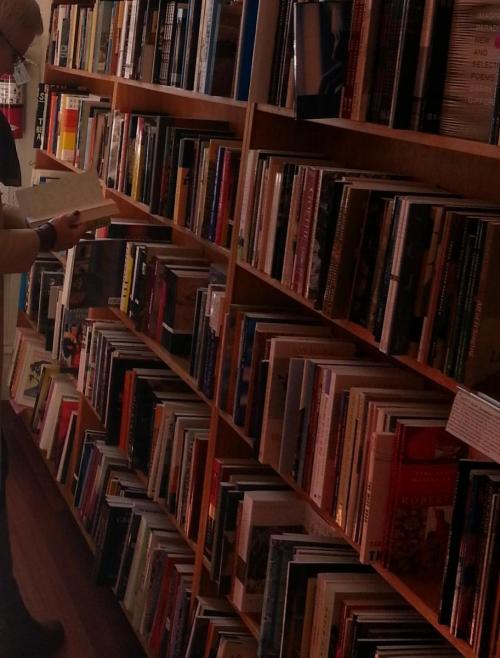Traditional Publishing vs. ebooks
 “In a bookstore in Nicaragua to buy souvenirs for friends back in the states, I stumbled across copies of Céline’s Journey to the End of the Night, and Death on the Installment Plan.” Thus starts off the first line of the poem Souvenirs in my book I Sing the Body Poetic. And this illustrates the big difference between ebooks and traditional books – you can’t stumble across a used ebook in an old bookstore. (Maybe someday that might be possible, but it’s not possible now, at least not in Nicaragua.)
“In a bookstore in Nicaragua to buy souvenirs for friends back in the states, I stumbled across copies of Céline’s Journey to the End of the Night, and Death on the Installment Plan.” Thus starts off the first line of the poem Souvenirs in my book I Sing the Body Poetic. And this illustrates the big difference between ebooks and traditional books – you can’t stumble across a used ebook in an old bookstore. (Maybe someday that might be possible, but it’s not possible now, at least not in Nicaragua.)
For many of us, the sensations of finding an old used copy of a well-remembered book, picking it up, remembering when we first read it, thumbing through the pages, feeling the weight of the book, and in my case, considering whether there was space in my backpack for the book, are part of the joy of reading. You don’t get that experience with an ebook.
But, as those of you who know the poem will recall, I did not buy either of the Céline books that day in Nacaragua – they were too heavy and there wasn’t space in my backpack – and that again illustrates the difference between ebooks and traditional books.
I published many books in Spain before I came to the United States. Those books are all now out of print. And in many cases, the publishing rights are held by the original publishers. When I started publishing books in English I vowed to myself that I would never again lose the publishing rights to my books. So now, I publish all my books as ebooks, exclusively on Kindle. I control the distribution rights, I set the price (very affordable, I might add), I decide on the promotions, and I know exactly what is happening with sales. So as an author, I prefer ebooks. But as an aficionado of used bookstores, I prefer traditional books. So I think it’s a polarity that cannot be resolved, at least not until you can wander into a used bookstore in another country and pick up a well-thumbed copy of an old ebook you used to love…


